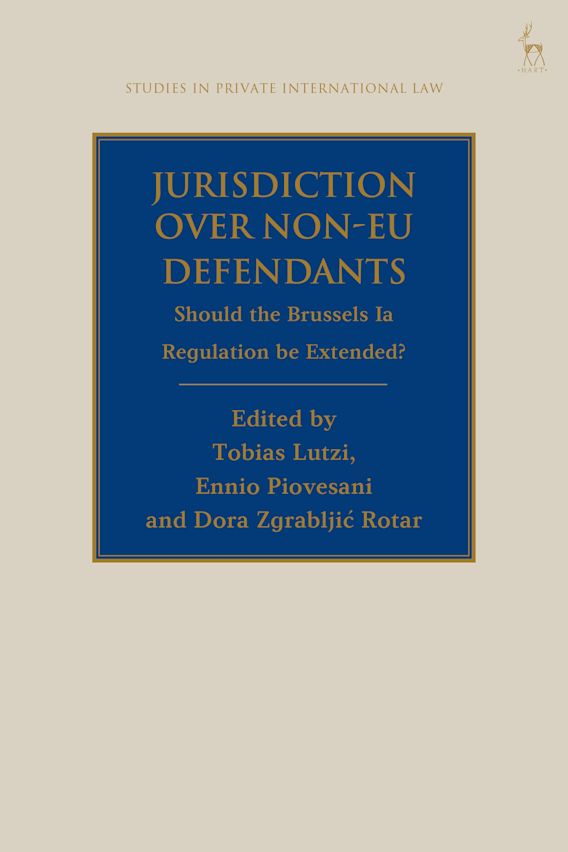Views
A European Law Reading of Achmea
Written by Prof. Burkhard Hess, Max Planck Institute Luxembourg.
An interesting perspective concerning the Achmea judgment of the ECJ[1] relates to the way how the Court addresses investment arbitration from the perspective of European Union law. This paper takes up the judgment from this perspective. There is no doubt that Achmea will disappoint many in the arbitration world who might read it paragraph by paragraph while looking for a comprehensive line of arguments. Obviously, some paragraphs of the judgment are short (maybe because they were shortened during the deliberations) and it is much more the outcome than the line of arguments that counts. However, as many judgments of the ECJ, it is important to read the decision in context. In this respect, there are several issues to be highlighted here: Read more
CJEU on the compatibility with EU law of an arbitration clause in an Intra-EU BIT – Case C-284/16 (Slovak Republic v Achmea BV)
Written by Stephan Walter, Research Fellow at the Research Center for Transnational Commercial Dispute Resolution (TCDR), EBS Law School, Wiesbaden, Germany
Today, the CJEU has rendered its judgement in Slovak Republic v Achmea BV (Case C-284/16). The case concerned the compatibility with EU law of a dispute clause in an Intra-EU Bilateral Investment Treaty (BIT) between the Netherlands and the Slovak Republic which grants an investor the right to bring proceedings against the host state (in casu: the Slovak Republic) before an arbitration tribunal. In concrete terms, the German Federal Court of Justice referred the following three questions to the CJEU (reported here): Read more
The impact of Brexit on the operation of the EU legislative measures in the field of private international law
On 28 February 2018, the European Commission published the draft Withdrawal Agreement between the EU and the UK, based on the Joint Report from the negotiators of the two parties on the progress achieved during the first phase of the Brexit negotiations.
The draft includes a Title VI which specifically relates to judicial cooperation in civil matters. The four provisions in this Title are concerned with the fate of the legislative measures enacted by the EU in this area (and binding on the UK) once the “transition of period” will be over (that is, on 31 December 2020, as stated in Article 121 of the draft).
Article 62 of the draft provides that, in the UK, the Rome I Regulation on the law applicable to contracts and the Rome II Regulation on the law applicable to non-contractual obligations will apply, respectively, “in respect of contracts concluded before the end of the transition period” and “in respect of events giving rise to damage which occurred before the end of the transition period”.
Article 63 concerns the EU measures which lay down rules on jurisdiction and the recognition and enforcement of decisions. These include the Brussels I bis Regulation on civil and commercial matters (as “extended” to Denmark under the 2005 Agreement between the EC and Denmark: the reference to Article 61 in Article 65(2), rather than Article 63, is apparently a clerical error), the Brussels II bis Regulation on matrimonial matters and matters of parental responsibility, and Regulation No 4/2009 on maintenance.
According to Article 63(1) of the draft, the rules on jurisdiction in the above measures will apply, in the UK, “in respect of legal proceedings instituted before the end of the transition period”. However, under Article 63(2), in the UK, “as well as in the Member States in situations involving the United Kingdom”, Article 25 of the Brussels I bis Regulation and Article 4 of the Maintenance Regulation, which concern choice-of-court agreements, will “apply in respect of the assessment of the legal force of agreements of jurisdiction or choice of court agreements concluded before the end of the transition period”(no elements are provided in the draft to clarify the notion of “involvement”, which also occurs in other provisions).
As regards recognition and enforcement, Article 63(3) provides that, in the UK and “in the Member States in situations involving the United Kingdom”, the measures above will apply to judgments given before the end of the transition period. The same applies to authentic instruments formally drawn up or registered, and to court settlements approved or concluded, prior to the end of such period.
Article 63 also addresses, with the necessary variations, the issues surrounding, among others, the fate of European enforcement orders issued under Regulation No 805/2004, insolvency proceedings opened pursuant to the Recast Insolvency Regulation, European payment orders issued under Regulation No 1896/2006, judgments resulting from European Small Claims Procedures under Regulation No 861/2007 and measures of protection for which recognition is sought under Regulation No 606/2013.
Article 64 of the draft lays down provisions in respect of the cross-border service of judicial and extra-judicial documents under Regulation No 1393/2007 (again, as extended to Denmark), the taking of evidence according to Regulation No 1206/2001, and cooperation between Member States’ authorities within the European Judicial Network in Civil and Commercial Matters established under Decision 2001/470.
Other legislative measures, such as Directive 2003/8 on legal aid, are the object of further provisions in Article 65 of the draft.
News
Jurisdiction Over Non-EU Defendants Should the Brussels Ia Regulation be Extended?

Just yesterday, Hart Studies in Private International Law officially published an edited book titled: T Lutzi et al, Jurisdiction over Non-EU Defendants: Should Brussels Ia Regulation be Extended? The blurb reads as follows:
This book looks at the question of extending the reach of the Brussels Ia Regulation to defendants not domiciled in an EU Member State. The Regulation, the centrepiece of the EU framework on civil procedure, is widely recognised as one of the most successful legal instruments on judicial cooperation. To provide a basis for the discussion of its possible extension, this volume takes a closer look at the national rules that currently govern the question of jurisdiction over non-EU defendants in each Member State through 17 national reports. The insights gained from them are summarised in a comparative report and critically discussed in further contributions, which look at the question both from a European and from a wider global perspective. Private international lawyers will be keen to read the findings and conclusions, which will also be of interest to practitioners and policy makers.
The Japanese Yearbook of International Law (Vol. 65, 2022)
The latest Volume (Vol. 65, 2022) of the Japanese Yearbook of International Law – published by the International Law Association of Japan – has been recently released. It features the following articles, case notes as well as English translation of some relevant court decisions relating to private international law.
GLOBALIZATION OF SOCIETY AND INTERNATIONAL FAMILY LAW IN JAPAN
Takami Hayashi, Introductory Note (p. 167)
Ryoko Yamaguchi, Interests of the Child in Child Abduction and Visitation Cases — Differences Between Japan’s Domestic and International Criteria— (p. 169)
Takami Hayashi, Transboundary Child Protection in Japan (p. 191)
HAYAKAWA Shinichiro, Japanese Perspective on Legal Issues of International Surrogacy (p. 213)
Moonsook Kim, International Adoption in Korea (p. 231)
Manabu Iwamoto, International Recovery of Maintenance in Japan (247)
ABLI-HCCH webinar: Cross-border Commercial Dispute Resolution – HCCH 1965 Service Convention (27 June 2023)

Following successful collaborations in 2021 and 2022, the Asian Business Law Institute (ABLI) and the Permanent Bureau of the Hague Conference on Private International Law (HCCH) are teaming up again for their third joint webinar this year on Tuesday 27 June between 4 to 5:10pm (Singapore time) or 10 to 11:10am (CEST).
Titled Cross-border Commercial Dispute Resolution – HCCH 1965 Service Convention, the webinar is expected to discuss, among others, the operation of the Service Convention in practice, how the Service Convention works with the other HCCH Conventions for cross-border dispute resolution, and Singapore’s accession to and upcoming implementation of the Service Convention.
Invited speakers include Sara Chisholm-Batten (Partner, Michelmores LLP), Melissa Ford (Secretary, HCCH), Delphia Lim (2Director, International Legal Division, Ministry of Law, Singapore), Professor Yeo Tiong Min (Singapore Management University), and Professor Yun Zhao (University of Hong Kong and Representative of Regional Office for Asia and the Pacific, HCCH).
For more information or to register, click here. Early bird discount is available till 28 May.
More about the webinar and its speakers can be found in the flyer.
Queries about the webinar can be directed to ABLI at info@abli.asia.


